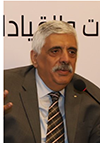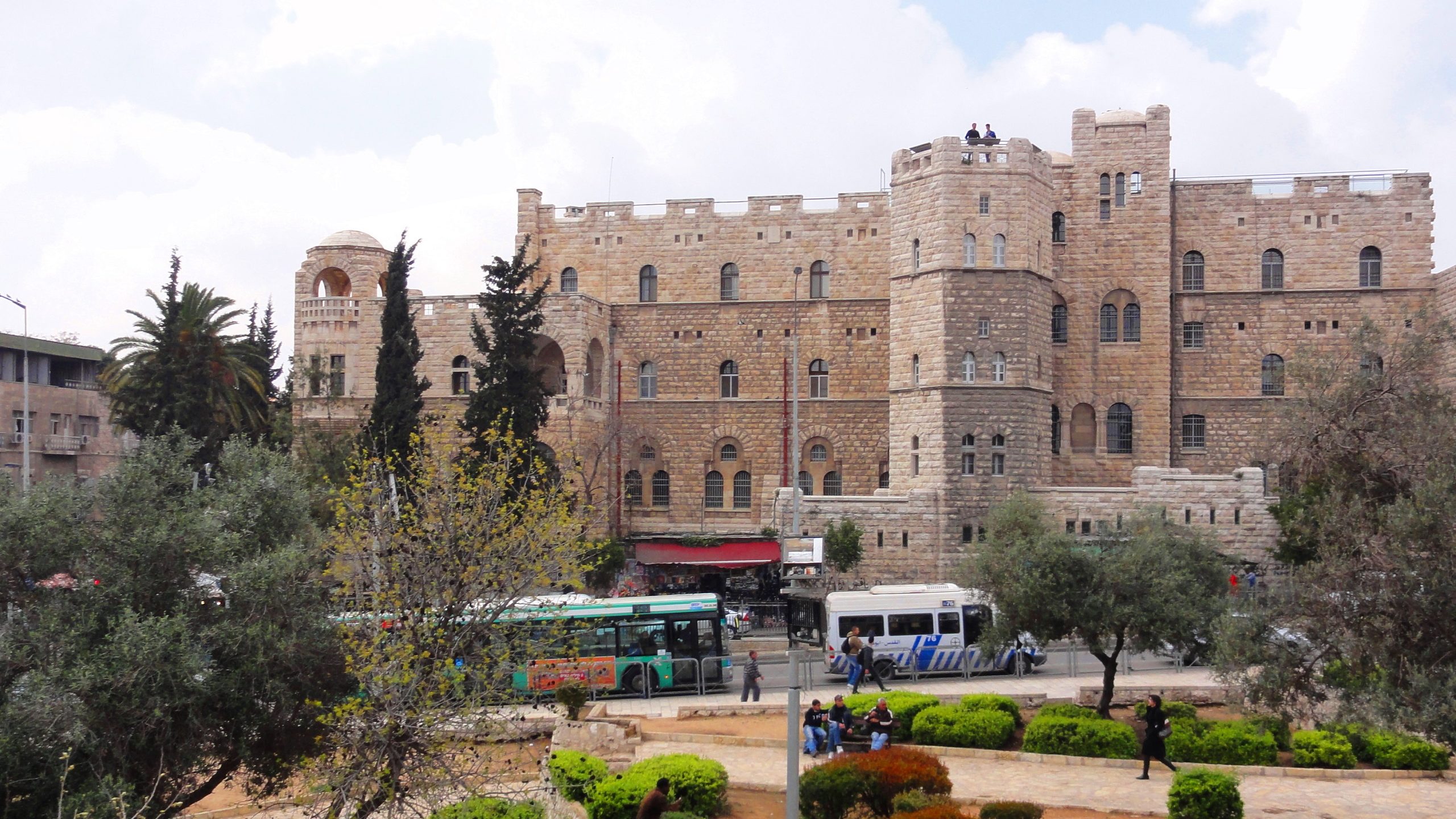East Jerusalem Arab Schools Face Financial Pressures, Efforts To Change Curriculum
Parents are leading a revolt against the Israeli Education Ministry’s ultimatum to the schools: Remove incitement against Israel or lose your license and government funding.
The status of Arab public schools in East Jerusalem has been problematic ever since the June 1967 war. Shortly after Israel took control of the area, it annexed the territory, putting the schools and their curricula under the formal control of Israel’s Education Ministry. But Palestinian parents balked at the new arrangement; when September 1967 rolled around, only a handful of East Jerusalem students attended the city’s many public schools. Instead, they enrolled in private schools or commuted to nearby Palestinian schools in the Ramallah or Bethlehem areas.
The Israeli government, realizing it could not impose its curriculum on the population, allowed Palestinian students to study based on the Jordanian (and later, the Palestinian) curriculum leading up to the “tawjihi” general secondary education certificate examination.
Alongside the public schools teaching based on the Jordanian, and later, Palestinian, curriculum, private secular and religious schools were popular for those who could afford the fees. Some of these are connected to specific churches and religious orders. Examples include Schmidt’s Girls College, an international German school for Christian and Muslim girls; St. George’s School (Madrasat al-Mutran), a British boys’ school run by the Anglican Diocese of Jerusalem; the French Catholic boys’ school La Salle Collège des Frères; the Rosary Sisters’ Catholic high school for girls; and various other Catholic, Orthodox, Coptic, and other schools, as well as several schools operated by the Jordanian Islamic waqf.
The principal of La Salle Collège des Frères, Brother Daoud Kassabry, told The Media Line that one of many problems facing education in East Jerusalem was cost. “The cost of education has been very heavy on families, which makes it very hard for Christian-run schools to survive.” Another problem is a lack of quality teachers, which is a result of the low pay the schools can offer. “Most of our teachers come from the West Bank,” Kassabry said, “and as a result, their university degrees are not recognized by the Israeli Education Ministry, which means they don’t qualify for the salaries that other teachers receive.”
Kassabry says that the schools so far have resisted the pressure to use the Israeli curriculum. “Even though all our schools and parents are united in resisting the attempts at Judaization of our curriculum, it is not clear how much longer we can withstand the constant Israeli pressure with so little help from outside sources.”
Richard Zananiri, the director of St. George’s School, says that the financial and curriculum pressure on schools has made the job of education in Jerusalem hard. “Our schools will resist and support the Palestinian curriculum as we insist that our students are not forced to have the Palestinian cause tainted by the adverse curriculum,” he told The Media Line.
Another principal, Samir Zananiri, who runs the Christian Orthodox Experimental Patriarchal School of Saint Demetrios in Jerusalem, says just accessing the school can be a big problem for teachers coming from the West Bank. “We often have problems in getting permits for some of our teachers because the Israelis don’t recognize their universities’ certification.”
With the introduction of a variety of international curricula, private, commercially run schools also proliferated and began to compete for students, as well.
Israel’s response was to offer subsidies to schools that agreed to introduce the Israeli curriculum and issue threats to close schools that insisted on using the Palestinian curriculum.
Conflict between the Arab East Jerusalem schools and the Israeli Education Ministry escalated in 2015, after the resignation of Shai Peron, from the centrist Yesh Atid party. Initially, then-Prime Minister Binyamin Netanyahu, from the right-wing Likud party, briefly took control of the ministry. A few months later, with the formation of a new Israeli government, the ministry came under the control of Naftali Bennett, then leader of the New Right party. It has been led by right-wing ministers – from the Jewish Home party, the Union of the Right-Wing Parties, the Likud, and now New Hope, ever since.
The current minister, Yifat Shasha-Biton, sent letters on July 28 threatening to rescind the operating licenses of six Palestinian schools in East Jerusalem that were using the Palestinian curriculum. Shasha-Biton’s office charged that the curriculum contained “dangerous incitement” against the Israeli government and army. The schools were given one year to change the curriculum or be permanently closed.
The schools targeted by the decision include Ibrahimieh College and five schools run by the Al-Eman Schools organization. Together, the schools have around 2,000 male and female students.
As in the fall of 1967, parents are again leading a revolt against the Israeli decision. They held a meeting at Ibrahimieh College, the largest of the six schools, at which they rejected the demand that the curriculum be changed. The school administrations have decided to honor the parents’ preference and continue to teach using the Palestinian curriculum, despite the Israeli threat.
The Media Line reached out to the Israeli Education Ministry and asked why the six schools were threatened with closure. The ministry responded by pointing to a statement published on Twitter: “We will not allow the teaching of inflammatory materials against the State of Israel and IDF soldiers,” the statement said, adding that East Jerusalem schools whose curricula portrayed Israeli soldiers as murderers, praised terrorists, and encouraged terrorism, would be required to change their teaching materials or their licenses would be revoked. “We will not allow budgeted schools to promote incitement, hatred, and terrorism,” continued the statement.
As part of a “sanitized” version of the social studies book that carried on its cover the Palestinian Education Ministry insignia, the term Palestine was purged as was the Palestinian flag (although it is not illegal according to Israeli law). All references to Al Aqsa were removed and new pages were added some apparently from the curriculum used in Israel proper. One page talks about the fact that Israel brought electricity to Arab villages and towns and another showed an Israeli flag with Arab flags around it saying that these countries are neighbors of Israel without even making reference to Palestine.
Other controversies have also erupted in recent weeks. The Jerusalem American School in Beit Hanina, started by an evangelical missionary but later sold to an Arab Israeli businessman, hired Nizar Daaka, a Druze Israeli, to serve as its principal. In late August, it became known that Daaka was an officer in the Israeli military.
Again, in this case, proud Palestinian parents were upset especially when they saw on social media photos of Daaka in his Israeli army uniform and of his children filmed in Israeli police cars. A group of parents met with the school’s owner and demanded that Daaka be removed from his position. He was given a temporary leave but it is unclear whether the school intends to replace him or return him to his position after the issue blows over.
The Arab educational system in East Jerusalem reflects the dichotomous position of Palestinian Jerusalemites. After the Oslo Accords, the 330,000 Arab Palestinians in Jerusalem find themselves political orphans. They are not ruled by the Ramallah government or allowed to hold Palestinian passports but also are not (except for a handful of them) Israeli citizens. Lacking elected representation in Israel’s parliament, the Knesset, and in the Jerusalem Municipality, they have no effective leadership that can represent their interests. In the case of education, it is the students who pay the price.



